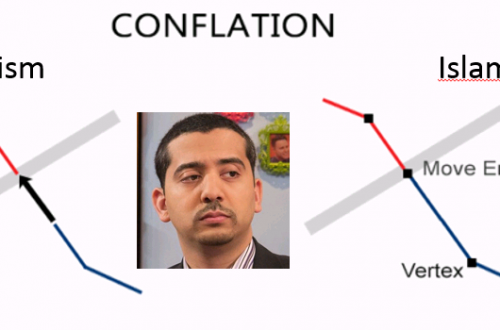Remember those distant days when you’d come to a blog like this, or similar places, and find a longish lament to how the democratic left had lost it’s bearings, forgotten its moral compass and allowed the shockwaves of the post-September 11 world to jolt it into a world of fantasy? That time when George Bush was Hitler, where America were the ‘real terrorists’ and all across the United States dissent was being closed down by a Gulag-State/Fourth Reich regime?
I bet you do.
Seems a long time ago now doesn’t it? But perhaps you will recall the calls for a Decent Left, for a muscular liberalism, the insistence on maintaining some core principles in difficult times, for alliances based on shared values and not ‘my enemy’s enemy’ politics? If not, you can read the Euston Manifesto, Dissent Magazine, Democratiya or Nick Cohen or David Aaronovitch’s archives.
Anyway, it was hard not to think back to those times when reading David Frum’s article in the latest New York magazine. It is a classic of the ‘I didn’t leave the party, the party left me’ genre and one which is packed full of pertinent points about how conservatism in America “has evolved from a political philosophy into a market segment.”
The business model of the conservative media is built on two elements: provoking the audience into a fever of indignation (to keep them watching) and fomenting mistrust of all other information sources (so that they never change the channel). As a commercial proposition, this model has worked brilliantly in the Obama era. As journalism, not so much. As a tool of political mobilization, it backfires, by inciting followers to the point at which they force leaders into confrontations where everybody loses, like the summertime showdown over the debt ceiling.
But the thought leaders on talk radio and Fox do more than shape opinion. Backed by their own wing of the book-publishing industry and supported by think tanks that increasingly function as public-relations agencies, conservatives have built a whole alternative knowledge system, with its own facts, its own history, its own laws of economics.
Outside this alternative reality, the United States is a country dominated by a strong Christian religiosity. Within it, Christians are a persecuted minority. Outside the system, President Obama—whatever his policy errors—is a figure of imposing intellect and dignity. Within the system, he’s a pitiful nothing, unable to speak without a teleprompter, an affirmative-action phony doomed to inevitable defeat. Outside the system, social scientists worry that the U.S. is hardening into one of the most rigid class societies in the Western world, in which the children of the poor have less chance of escape than in France, Germany, or even England. Inside the system, the U.S. remains (to borrow the words of Senator Marco Rubio) “the only place in the world where it doesn’t matter who your parents were or where you came from.”
Frum recounts his own ostracism from the right and it is well worth a read to gain a little more understanding of just how far conservatism in the U.S. has drifted from reality-based politics.
Have a read of When Did the GOP Lose Touch With Reality?


